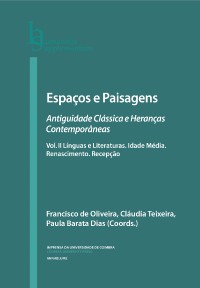Please use this identifier to cite or link to this item:
https://hdl.handle.net/10316.2/31831| DC Field | Value | Language |
|---|---|---|
| dc.contributor.author | Panno, Giovanni | |
| dc.date.accessioned | 2014-06-26T14:00:07Z | |
| dc.date.accessioned | 2020-09-21T04:36:14Z | - |
| dc.date.available | 2014-06-26T14:00:07Z | |
| dc.date.available | 2020-09-21T04:36:14Z | - |
| dc.date.issued | 2012 | - |
| dc.identifier.isbn | 978-989-26-0294-3 (PDF) | |
| dc.identifier.uri | https://hdl.handle.net/10316.2/31831 | - |
| dc.description.abstract | In the Religion in the limits of the Simple Reason the kingdom of purpose is the realisation of an ethical/political way open to the one, who achieves to take over his own too-humanity. This happens when the one imitates a model inscribed in the ontological structure of his soul (Urbild) – in this case for Kant’s text this model is Christus (Vorbild) – , at the same time the one participates in the movement of the invisible church, this bypassing the visible church. This space corresponds to the production of politics and realize the overcoming of politics in the politics. In this space religion becomes unnecessary because of her cristallized exterior bond. The kantian kingdom of purposes has a common foundation in the idea of Good as epekeina tes ousias, beyond the Being, as in Plato’s political philosophy, in Moro, Campanella and Bacon utopical projects. The aim of this paper is to show that the en-lighting production of moral, political and religious order in Kants project of a new religion is near to the platonical movement of a principle, which must not be resolved in his principiated. The mediation of the figure Christus’ shows the same dialectic of platonic ideas as production of light. | eng |
| dc.language.iso | ita | - |
| dc.publisher | Imprensa da Universidade de Coimbra | por |
| dc.publisher | Associação Portuguesa de Estudos Clássicos | por |
| dc.relation.ispartof | http://hdl.handle.net/10316.2/2343 | por |
| dc.rights | open access | - |
| dc.subject | Imagination | eng |
| dc.subject | Kant | eng |
| dc.subject | Political theology | eng |
| dc.subject | Religion | eng |
| dc.subject | Imaginação | por |
| dc.subject | Kant | por |
| dc.subject | Religião | por |
| dc.subject | Teologia política | por |
| dc.title | Elaboração da luz no espaço entre a igreja visível e invisível no pensamento de Kant: as raízes platónicas e utópicas do modelo original | por |
| dc.type | bookPart | por |
| uc.publication.firstPage | 431 | - |
| uc.publication.lastPage | 438 | - |
| uc.publication.location | Coimbra | por |
| dc.identifier.doi | 10.14195/978-972-98142-2-8_15 | - |
| uc.publication.digCollection | PB | por |
| uc.publication.orderno | 15 | - |
| uc.publication.area | Artes e Humanidades | por |
| uc.publication.bookTitle | Espaços e paisagens: antiguidade clássica e heranças contemporâneas: Vol.2 Línguas e Literaturas: Idade Média, Renascimento, Recepção | - |
| uc.publication.manifest | https://dl.uc.pt/json/iiif/10316.2/31831/227975/manifest?manifest=/json/iiif/10316.2/31831/227975/manifest | - |
| uc.publication.thumbnail | https://dl.uc.pt/retrieve/11429252 | - |
| uc.publication.parentItemId | 50917 | - |
| uc.itemId | 73741 | - |
| item.grantfulltext | open | - |
| item.fulltext | With Fulltext | - |
| Appears in Collections: | Espaços e paisagens: antiguidade clássica e heranças contemporâneas: Vol.2 Línguas e Literaturas: Idade Média, Renascimento, Recepção | |
Files in This Item:
| File | Description | Size | Format | |
|---|---|---|---|---|
| 15-_espa_os_e_paisagens._antiguidades_cl_ssicas_vol_ii.pdf | 149.07 kB | Adobe PDF |  |
Items in DSpace are protected by copyright, with all rights reserved, unless otherwise indicated.
